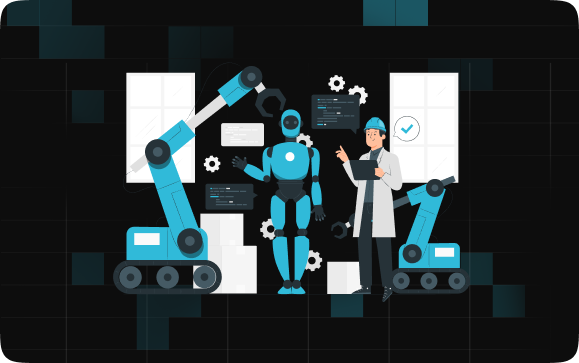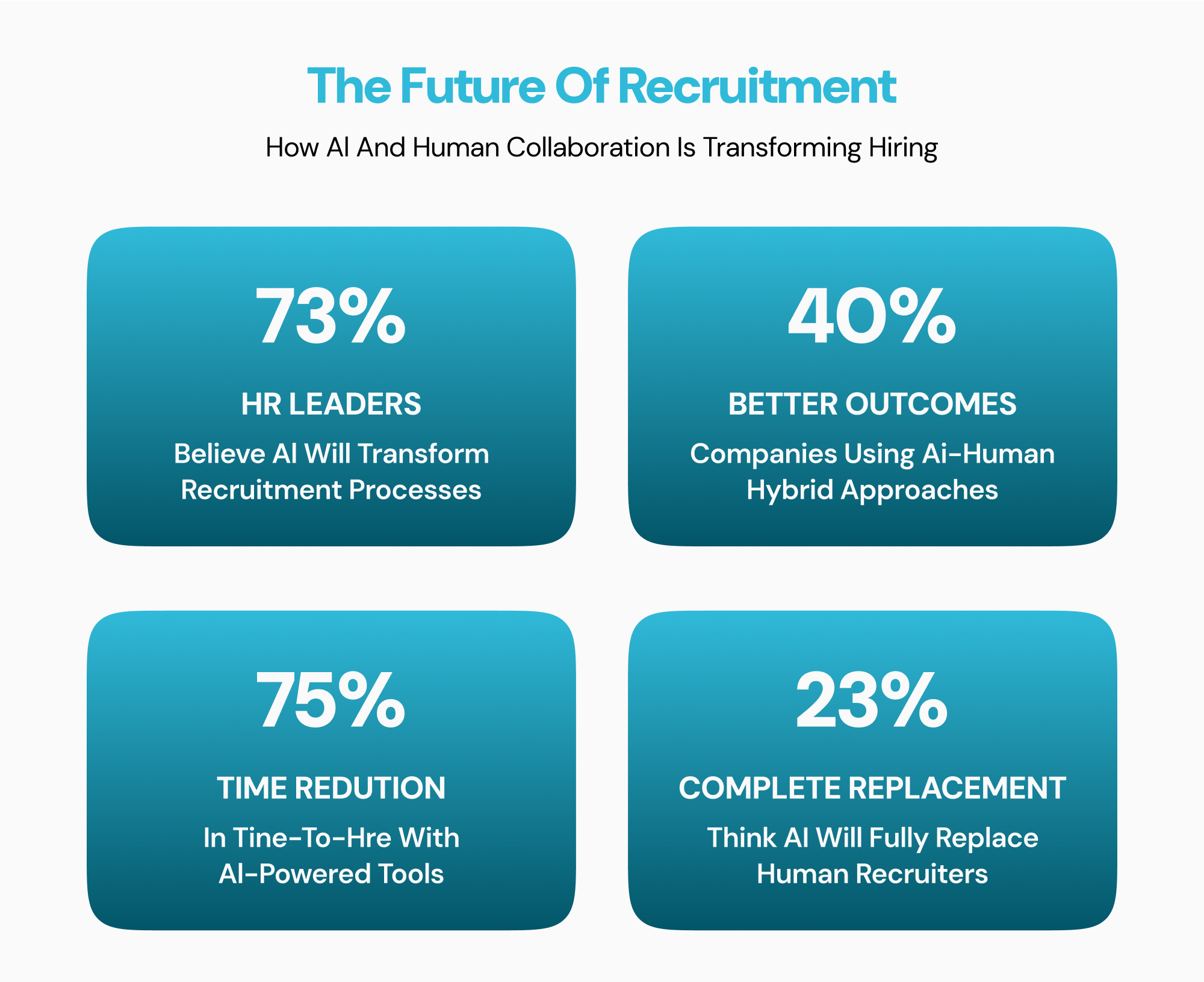Will AI Replace Recruiters? - A Facts Based Analysis
Read Time
10 minutes
Updated On
January 9, 2026
.jpeg)
Ruchi Kumari
Content & Thought Leadership

Last month, I watched a hiring manager reject a candidate who had passed every AI screening metric with flying colors. Why? “Something felt off in the interview,” she told me. She couldn’t quite explain it, maybe it was the way he talked about his former colleagues, or how his energy didn’t match the team’s vibe. That indefinable “something” is exactly why the question of AI replacing recruiters isn’t as simple as tech evangelists make it sound.
We build AI recruiter agents that can parse thousands of resumes in minutes, conduct video interviews, and even predict candidate success rates. Some teams have seen their time-to-hire drop by more than 75%. The efficiency gains are real and impressive.
But what those metrics don’t capture is the human layer, the gut instinct that makes a recruiter pause on an unconventional resume, or the ability to convince a hesitant candidate to take a leap. That’s where we believe the future lies: AI doing the heavy lifting, and humans doing what they do best, connecting, sensing, deciding.
Here’s the real dilemma recruiters face. Every time AI gets better at screening and matching, there’s pressure to cut headcount. But every time companies lean too much on automation, they end up with bad hires who looked perfect on paper.
We’ve seen this cycle repeat across industries. The question isn’t really whether AI will replace recruiters. It’s what parts of recruiting are truly human, and what parts we’ve been doing manually only because we didn’t have smarter tools before.
Industry experts remain divided on this crucial question. According to Microsoft, 73% of HR leaders believe AI will transform work for the better.
Jason Lauritsen, Workplace Futurist: “In 2025, AI will be responsible for 20% of all hiring decisions, making it an essential tool for recruiters and hiring managers.” Lauritsen stresses that while AI is transforming recruitment, the most effective organizations use AI to automate routine tasks and empower recruiters to focus on relationship-building and candidate experience. Tools such as AI ad generators are increasingly being used to craft engaging and inclusive job postings, helping recruiters attract the right talent more efficiently while maintaining a human-centered hiring approach.
Recent studies from Harvard Business Review suggest that companies using AI-human hybrid approaches see better hiring outcomes compared to those relying solely on either AI or human recruiters. This data points toward collaboration rather than replacement.
The consensus among most experts seems to be that while AI will dramatically change how recruitment works, the human element remains irreplaceable for building trust, understanding cultural nuances, and making complex hiring decisions that require emotional intelligence and strategic thinking.
After examining the evidence and considering both the capabilities and limitations of current AI technology, our verdict is clear: AI agents cannot and should not completely replace human recruiters.
Here's why this conclusion makes sense. AI agents are incredibly powerful tools that can process vast amounts of data, identify patterns, and automate repetitive tasks with remarkable efficiency. They can screen resumes faster than any human, schedule interviews automatically, and even conduct basic assessments. These capabilities make them invaluable allies in modern recruitment.
However, recruitment is fundamentally a human-centered activity. It involves understanding people, building relationships, and making nuanced decisions that require empathy, intuition, and cultural awareness. These are areas where AI, despite its impressive capabilities, still falls short. Many experts continue to ask: can AI replace recruiters, or will recruiters evolve into strategic partners empowered by technology?
The future of recruitment lies not in replacement but in collaboration. The most successful recruitment strategies will combine AI's efficiency and data processing power with human recruiters' emotional intelligence, relationship-building skills, and strategic thinking. This hybrid approach delivers the best of both worlds: speed and accuracy from AI, coupled with the human touch that makes great hiring decisions possible.
Smart companies are already moving in this direction, using AI-powered recruitment platforms to handle routine tasks while empowering their human recruiters to focus on what they do best: building relationships and making strategic hiring decisions.
AI agents struggle with reading emotional cues and understanding cultural nuances that are crucial for determining if a candidate will thrive in a specific work environment. Human recruiters can pick up on subtle signals during conversations, assess how well someone might gel with existing team members, and make intuitive judgments about personality fit that AI simply cannot replicate.
Recruitment often involves making difficult decisions with incomplete information. Should you hire someone who lacks one key skill but shows exceptional potential? How do you weigh a candidate's enthusiasm against their experience? These judgment calls require human wisdom, experience, and the ability to think beyond algorithmic decision trees.

The best recruiters build long-term relationships with both candidates and hiring managers. They understand individual preferences, career aspirations, and company cultures in ways that enable them to make perfect matches. This relationship-building aspect of recruitment requires genuine human connection that AI agents cannot authentically provide, reinforcing the argument that will recruiters be replaced by AI is not a simple yes-or-no question.
Every hiring situation is unique, and successful recruiters must adapt their approach based on specific circumstances. They might need to think creatively about where to find candidates, how to present opportunities, or how to overcome objections. This level of adaptability and creative problem-solving remains firmly in the human domain.
While AI can help reduce certain types of bias, it can also perpetuate others if not carefully managed. Human recruiters play a crucial role in ensuring fair and ethical hiring practices, questioning AI recommendations when they seem off, and maintaining the human oversight necessary to prevent discrimination and ensure inclusive hiring practices.
We’re not going to sugarcoat it, AI will replace some recruiting roles. High-volume, transactional jobs are already being automated, and that shift is only speeding up.
But the recruiters who can walk into a hiring manager’s office and say, “I know this candidate doesn’t tick every box, but here’s why they’re special”, they’re not going anywhere.

We believe the future isn’t humans or AI, it’s both. Let AI handle the repetitive work, and let recruiters focus on judgment, empathy, and connection, the things no algorithm can replicate.
Our goal is simple: build AI recruiter agents that make people superhuman, not redundant.
